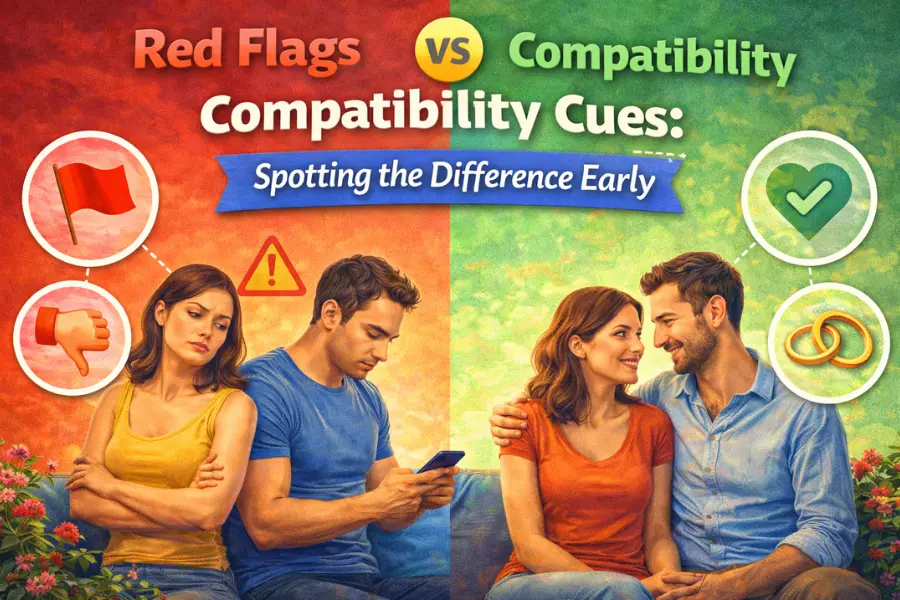We’ve all experienced the long text, where you’re asking for forgiveness for everything you just said or did, worrying about every single part of it, only to send the long text, and to immediately ask yourself, “Was that okay?” These words of explanation are not just referencing communication. In many cases, over justifying behavior may be history from relationship anxiety, a silent wrestler from our past, telling us to prove ourselves at every moment.
When Love Goes into Explanation Mode
It usually begins with something minute. If your partner doesn’t respond to your text immediately, the first tiny smidge of anxiety enters your mind. The next time you text them, you may find your fingers typing in a little more “I hope I didn’t seem rude before,” “I simply wanted you to know I care,” when no one even asked for an explanation at all.
Gradually, a pattern emerges where the explanation becomes worrying. You find that you’re fixating on the fear that you might say one wrong word, which might make them distance themselves from you. The fact is, over explaining your love does not exemplify love at all. It symbolizes an inner disturbance. It is an emotional imbalance, where reassurance replaces trust. This is often linked to relationship anxiety that whispers to you, “You’re not enough, unless you explain everything.”
The Quiet Trigger for Over-Explanating
Let’s be real: most folks who over-explain don’t know they’re doing it. It usually comes from your past. For example, from an unpredictable communication style in a relationship or a person who made you feel guilty for expressing yourself. As a result, even in relationships that are healthy, your brain automatically switches into “damage control”.
Underlying relationship anxiety thrives on this ambiguity. It tells you: If I don’t justify myself, I will be misunderstood or rejected. This habit of reasoning and explaining begins to cross a line between healthy communication and self-defense. Every single message you share your doubt becomes an effort to assure safety in your relationship and maintain the peace of communication rather than a meaningful expression of yourself.
One of the most confusing things is that your partner may be completely unaware of your nervousness. From his/her point of view, you could only be a person who is not very self-confident or lacks confidence. You want intimacy, but instead an emotional distance is created.
Breaking the Habit of Constant Justification
Recognizing the need to stop over-justification is the beginning of the solution. Take a breather when writing that additional paragraph or offering another reason for something trivial. You could pose the question, ‘Will I be misunderstood or will I have to do this to avoid misunderstandings?’
The capacity to withstand silence has a special power of its own. There is no need to repeatedly address every silence or every response. Have the confidence to know that your love does not need to be demonstrated every moment. True emotional intimacy exists in the silence, the spaces where people can be themselves.
Start open and honest talks with your partner. For instance, ‘Sometimes, I feel anxious about my communication skills, and this leads me to divulge more than I should.’ The acknowledgment of insecurities in a partnership can actually, against the common belief, deepen the connection instead of breaking it. This is not a call for sympathy, it is the allocation of the gift of understanding.
Restoration and Repriming of the Emotional Equilibrium
To heal from the habit of over-explaining, one has to recreate a sense of emotional safety. Time should be devoted to building self-worth in a manner that is not dependent on the relationship. Instead of texting, one should write in a journal what they are thinking. Say the things you have to say just once and do not let them be.
Confidence in love does not mean that the partners always comprehend each other; rather it implies that even if the non-comprehension persists, the partners will still be fine. You can trust yourself and as a result, you will no longer think about the anxiety in the relationship so much.
To be reminded, love is to feel liberated, not to be in a constant battle for one’s approval. There is no need to explain your tone, timing, or feelings every time you communicate.There are moments when “I meant what I said” is already enough.
Final Thought:
Over-explaining your love is not a mistake, it’s a way of dealing which, at one point, helped you to feel secure. However, it is now a matter of moving beyond it. The moment the fear of self-expression dissipates, something truly wonderful will manifest: your connections with others will deepen, becoming more clear, and profoundly human. Ultimately, love in its purest form needs no testament. It just understands.




